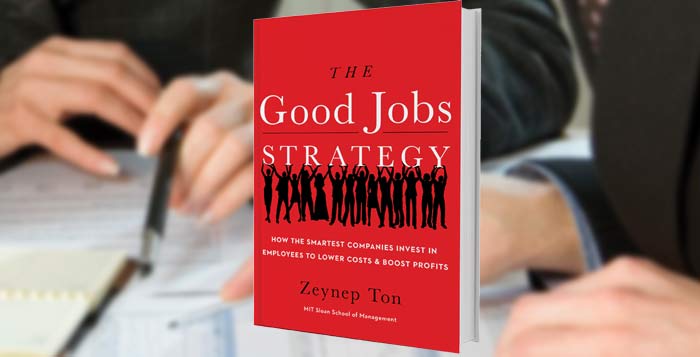Many people in the business world assume that bad jobs are necessary to keep costs down and prices low, writes Zeynep Ton in the Good Jobs Strategy. They are wrong.
“When Walmart executives are asked about the bad jobs they provide they often give an answer that goes something like this: ‘We need to run a really efficient operation because customers come to us for low prices.’ And it’s not only Walmart executives who suggest that bad jobs are necessary for low prices,” writes Ton.
Others who believe it are City analysts, investors, academics and even other retailers. But they are wrong, says Ton. A professor at leading US business school MIT Sloan, Ton argues there is a good jobs strategy that works even in low-cost retail.
She contrasts the experiences of Janet, who after seven years and several promotions with a “large retail chain” was earning $22,000 (£13,064) a year, and Patty, who works for QuikTrip, a US convenience store chain.
Patty had planned to work there temporarily but after two years, she realised QuikTrip was a great career. Patty earns $70,000 a year, has affordable healthcare, enjoys a stable schedule and “finds dignity and satisfaction in her work”.
[pull_quote_right]High investment in employees is possible by reducing business costs and increasing labour productivity[/pull_quote_right]
“You were asking what makes me excited about going to work every day,” Patty says. “It’s knowing you’re going to be able to take care of your kids and don’t have to worry I am going to get laid off tomorrow.”
Patty’s work involves managing 14 employees as well as working the cash register, changing the coffee filters, putting products on the shelves and cleaning the bathrooms.
“But that is not how Patty and the dozens of other QuikTrip employees I met see their jobs. They see themselves as doing something worthwhile, doing it well and getting paid and treated well for doing it,” writes Ton.
“It’s not just the employees who love QuikTrip. Customers love it, too. [It] has low prices and excellent customer service. Patty is friendly and knows all the regular customers but doesn’t spend much time chatting.
“Instead she focuses on putting the right product on the right shelf with the right price tag. She and her crew are vigilant about keeping the store clean, especially the bathrooms.
“Everyone has a quick trip though the checkout. That’s why sales per square foot are 50% higher than the industry average and its [petrol] sales twice the industry average.”
Ton is unsympathetic with those companies who say they cannot offer good jobs. They have a choice, she argues. Some retail operators don’t know how to offer good jobs. Others do but simply choose not to because it is too much work for them.
The secret is simply getting operations right. There are four choices you have to make:
- offer less;
- standardise and empower;
- cross-train; and
- operate with slack.
Model retailers operate with all four in tandem and it works, Ton insists. “The four operational choices make high investment in employees possible by reducing business costs and increasing labour productivity. At the same time, it is the high investment in skilful and motivated employees that makes these operational choices work well.”
If you love retailing, the Good Jobs Strategy is a book that will open your eyes. It may also give you an edge few competitors will ever be able to match if you read its case studies. A must-read for ambitious retailers.
The Good Jobs Strategy by Zeynep Ton is available to buy online






Comments
This article doesn't have any comments yet, be the first!